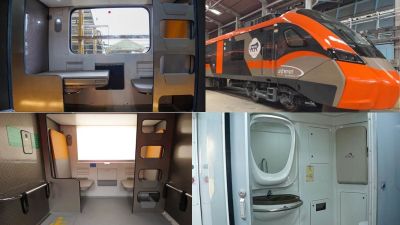Indicus to launch Hindi search engine
The search for regional languages on the Net has just got more competitive with the Republic Day launch of Raftaar.com, the first dedicated ...

The search for regional languages on the Net has just got more competitive with the Republic Day launch of Raftaar.com, the first dedicated Hindi search-engine on the lines of Google.
Though touted as a 8216;8216;nationalistic endeavour,8217;8217; the search site 8212; developed by Delhi-based research firm Indicus Analytics 8212; is backed by data that points to the growing number of online users that want to find Hindi content on the Net.
8216;8216;The idea germinated after Juxt Consult a sister concern of Indicus conducted a random sample study in 2005. Of 31,382 Internet users in the study, 44 per cent wanted to see Hindi content,8217;8217; says Laveesh Bhandari, Head, Indicus Analytics, and promoter of Raftaar.com.
Further down the list of alternatives to English on the Net comes South-Indian languages the choice for 25 per cent of the respondents, West-Indian languages 13 per cent. Seven per cent preferred East-Indian languages and 3 per cent liked North-Indian languages barring Hindi.
8216;8216;The government has many plans for promotion of Hindi, but there are some lacunae. We did some research for the Ministry of Panchayati Raj and found that if people in villages are to be beneficiaries of the IT revolution, then information must reach them in their own language,8217;8217; avers Bhandari.
Sangeeta Gupta, VP-Nasscom agrees: 8216;8216;The emergence of local content on Internet will lift usage. There is a large population of people who would add to the number of Internet users if there are search-engines in Hindi8217;8217;.
If there is only one big search engine in Hindi thus far 8212; Webduniya.com, packaged as the first Hindi portal 8212; that8217;s because of the big roadblock to a successful search in the vernacular: fonts.
8216;8216;The absence of a standard basis for font development means that exchange of information becomes difficult. For a Hindi site, it was more difficult as nearly 500 different sets of fonts needed to be matched. The obstacle overcome, we are now ready for the show,8217;8217; says Peeyush Bajpai, director, Raftaar.com.
And what would the revenue model of this search engine be? Raftaar is obviously taking it slow and easy here. 8216;8216;Right now we are not concerned about the commercial aspects, so we have not tied-up with any multi-national or government agency. To cut costs in the initial stage we are not even buying web space, instead we will host our own server. All this will make it economically feasible8217;8217;.
The search engine will be in a test-phase for some time.
- 01
- 02
- 03
- 04
- 05































